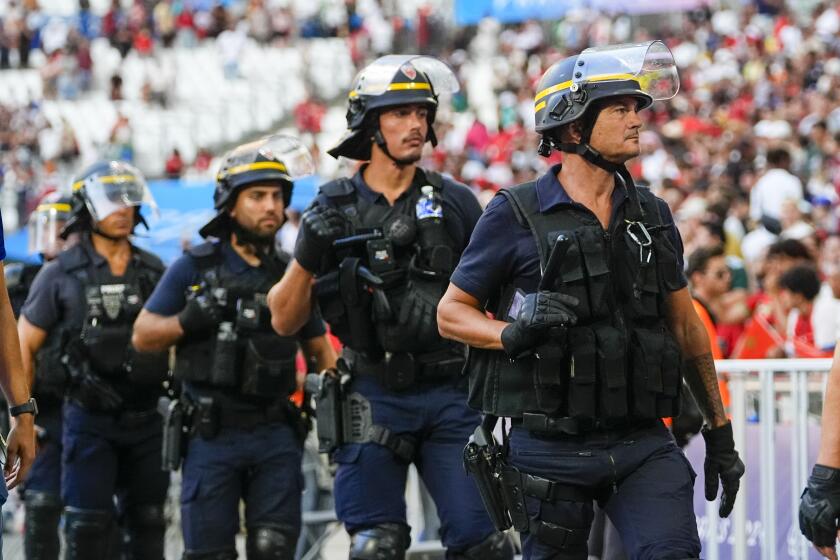Felix Loch wins gold medal in men’s luge
On an icy track slowed by bureaucracy and weather, Germany’s Felix Loch won the men’s luge competition Sunday by being the overall best at the start.
At 20, he is the youngest luge gold medalist.
The two-time world champion derailed Armin Zoeggeler of Italy from his quest for three consecutive gold medals in a competition largely decided by international federation officials, who lowered the starting line about 600 vertical feet to the women’s take-off point after the fatal accident Friday.
The reduced speeds gave the advantage to the man with the most explosive start, and Loch made the most of it. He led wire to wire, putting away his countryman and fellow two-time champion David Moeller in the third heat and cruising to victory by more than half a second with a total time of 3 minutes 13.085 seconds.
“It’s important for Germany to have won its first gold in men’s luge in 12 years,” said Loch, who is coached by his father. He said he was worried that the change in the starting line would hinder his performance, “but it’s OK, it’s great.”
Zoeggeler, who finished third (3:14.375), was barely better than the man he had predicted would win, Albert Demtschenko of Russia, the 2006 silver medalist and a six-time Olympian (3:14.405).
The crowd cheered Zoeggeler as he crossed the finish line and he responded with fist pumps and waves.
Tony Benshoof, 36, the most decorated U.S. slider, who battled three herniated disks in his back all season, finished eighth in 3:15.218, two seconds behind the leader.
“I’m obviously very disappointed with the finish,” Benshoof said. “The drop at the start put me at a huge disadvantage, but I did my best.”
He said he’ll have surgery in the spring after the U.S. national championships and will “pretty likely” retire after that.
“But never say never,” Benshoof added, grinning.
Chris Mazdzer and Bengt Walden, who each started the day slightly more than a second behind the leader, failed to break into the top 10. Mazdzer finished 13th (3:15.813) and Walden finished two spots back (3:15.984).
Interestingly, the months of sniping about Canadian athletes having an unfair training advantage over other nations appears not to have mattered in the men’s competition. And the promise by a Canadian sponsor to pay a $1-million bonus for a gold medal didn’t appear to do much either.
The best the host nation could manage was a seventh-place showing by Sam Edney, who finished 1.755 seconds behind the winner. His teammates were 14th and 20th.
Track workers raised and lowered white shades to shield the ice from periods of rain and sun that softened the refrigerated surface as the day went on. The softer surface allowed sled runners to grip better, giving the sliders more control.
As the sun went down, the ice hardened, giving the top sliders a surface more matched to their skills.
Loch, who held the track speed record of 95.6 mph from the men’s start, had the fastest run of the day at 90.4 mph.
Go beyond the scoreboard
Get the latest on L.A.'s teams in the daily Sports Report newsletter.
You may occasionally receive promotional content from the Los Angeles Times.



